![]() Minnesota Center for the
Minnesota Center for the
Alexander Technique (MinnCAT)
The Training Course
People who enjoy the Alexander Technique and wish to learn it at a deep level may consider the Teacher Training Course at the Minnesota Center for the Alexander Technique (MinnCAT). Undertaking a 3-year training is often transformational and life-changing as "the work" is embodied.
training is often transformational and life-changing as "the work" is embodied.
Becoming a teacher of the Alexander Technique can be a source of life-long joy, continual inspiration, and source of income helping others. Opportunities exist on either a full-time or part-time basis... to help others solve their problems and be their best. Potential students (i.e. clients) include a wide range of people — young to old — with a huge range of  occupations and interests. Becoming an Alexander Technique expert can be an important adjunct to concurrent vocations or avocations, and/or professions involving helping or teaching others. For further information regarding teacher training at MinnCAT, contact the director at (612) 267-5154 or Brian@MinnCAT.org
occupations and interests. Becoming an Alexander Technique expert can be an important adjunct to concurrent vocations or avocations, and/or professions involving helping or teaching others. For further information regarding teacher training at MinnCAT, contact the director at (612) 267-5154 or Brian@MinnCAT.org
The Minnesota Center for the Alexander Technique (MinnCAT) is approved by the American Society for the Alexander Technique (AmSAT).
Individual attention is a main feature of teacher training with a student-teacher ratio no greater than five-to-one. Learning to embody the principles of the Techniq ue and communicate them to others is achieved through direct, practical experience. Class time is devoted to instruction in the “use of the self” (self-development of the trainee), understanding the fundamental principles, development of hands-on and verbal skills, learning to convey the experience of the principles to others, practice of F.M. Alexander's innovative procedures, and a thorough review of F.M. Alexander’s writings with a review of other related literature.
ue and communicate them to others is achieved through direct, practical experience. Class time is devoted to instruction in the “use of the self” (self-development of the trainee), understanding the fundamental principles, development of hands-on and verbal skills, learning to convey the experience of the principles to others, practice of F.M. Alexander's innovative procedures, and a thorough review of F.M. Alexander’s writings with a review of other related literature.
F. M. Alexander (1869-1955) began training teachers in London in 1932. Today, the American Society for the Alexander Technique (AmSAT) ensures the high standards that Alexander envisioned. As a member of AmSAT and, by extension, the worldwide affiliated societies (ATAS), MinnCAT faculty share a commitment to these standards and adhere to a strict code of professional conduct.
Life on the Training Course
Expect an immersion into the benefits of the Alexander Technique. You'll experience an integration of Alexander principles, growth of experience with hands-on work, improved "use of the self", application to daily living, and learning ways to help others.
You likely will gain a pleasing sense of well-being and strength as the weeks go by.
The training is mostly experiential practice during class hours, with some outside reading. Away from class, trainees often carry on with jobs or attend college — while at the same time benefiting from the positive effects of the training.
College teaching experience
A major benefit of this training course will be interaction with the University of Minnesota Alexander Technique class. Trainees will become qualified to teach an Alexander class in a college or institutional setting, if they so choose.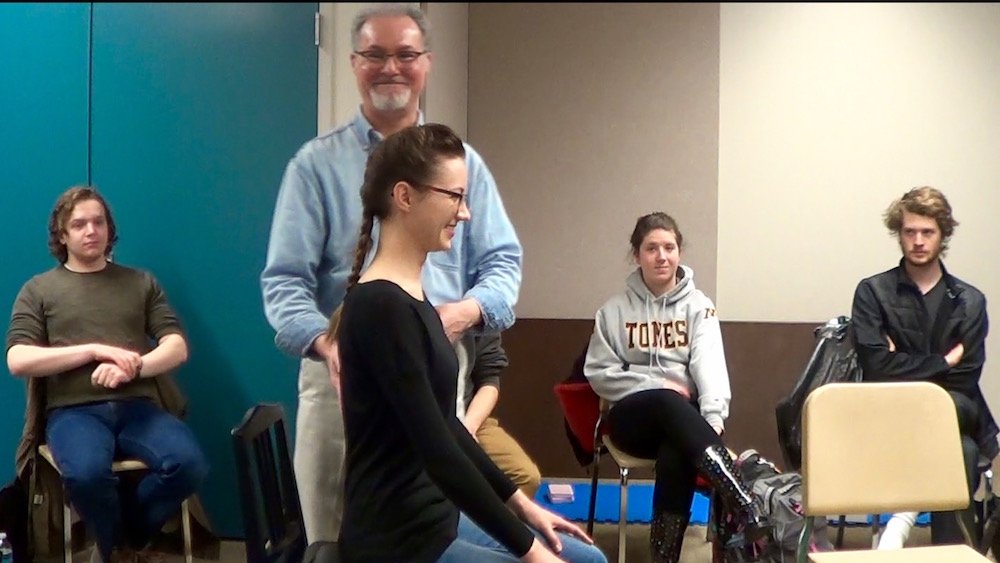
Certification
It is our intention that, upon successful completion of the Training Course, you will apply for teacher certification and membership in the American Society for the Alexander Technique (AmSAT), the Technique’s largest professional organization in this country with worldwide affiliation through Alexander Technique Affiliated Societies, ATAS.
Credit Transfer
Generally, training course hours can transfer to and from any of the 15 AmSAT approved training courses across the US and numerous international programs.
Training Course Faculty
Brian McCullough, Director
Brian is the Director of the Minnesota Center for the Alexander Techique (MinnCAT). Additionally, he has served on the faculty at the University of Minnesota for 21 years 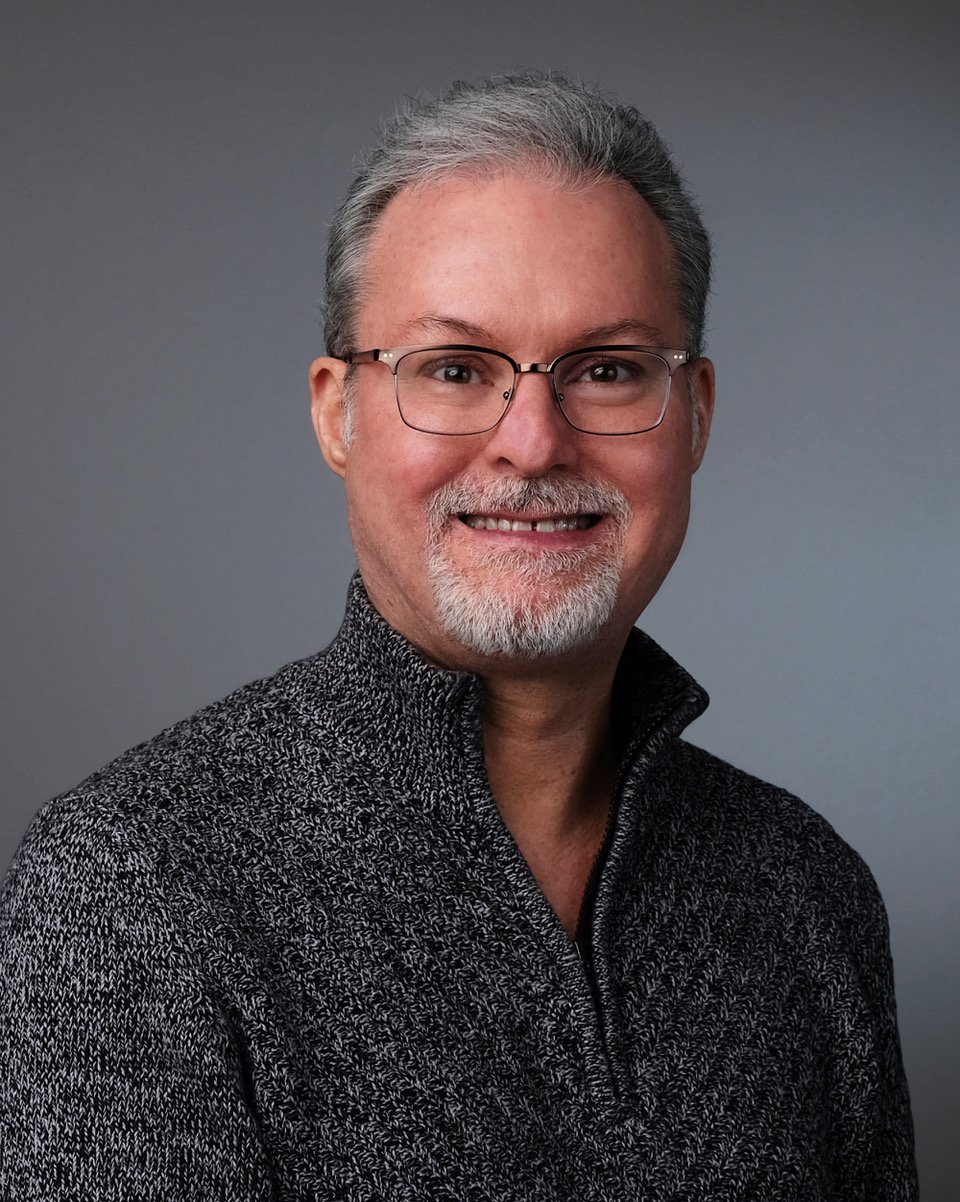 teaching the Alexander Technique, and has maintained a private teaching studio frequented by a diverse population — of office workers, performing artists, fitness enthusiasts, sportspersons, people in pain, and people of just about any interest — looking for instruction in the Alexander Technique. See more about Brian here.
teaching the Alexander Technique, and has maintained a private teaching studio frequented by a diverse population — of office workers, performing artists, fitness enthusiasts, sportspersons, people in pain, and people of just about any interest — looking for instruction in the Alexander Technique. See more about Brian here.
Tully Hall, Associate Faculty
Tully comes from a music performance background and has been teaching since 1990. She has a private in-person practice in Woodbury and Minneapolis in addition to giving 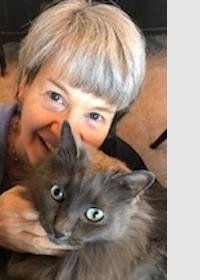 online lessons and a weekly online class. Tully has taught in various educational and corporate settings in Virginia, Washington DC, Massachusetts, Florida, and Minnesota. She is certified by the American Society for the Alexander Technique. Tully loves working with musicians of all levels. Here is Tully's website.
online lessons and a weekly online class. Tully has taught in various educational and corporate settings in Virginia, Washington DC, Massachusetts, Florida, and Minnesota. She is certified by the American Society for the Alexander Technique. Tully loves working with musicians of all levels. Here is Tully's website.
Sahar Hassan, Assistant Faculty
Sahar came to the Alexander Technique through studying voice to gain more freedom in her own singing. She trained with Brian McCullough at Minnesota Center for the Alexander 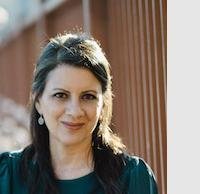 Technique. She approaches working with students based on their individual needs, to help them find more ease in their day-to-day activities. Sahar's website is here.
Technique. She approaches working with students based on their individual needs, to help them find more ease in their day-to-day activities. Sahar's website is here.
Sahar is a freelance singer in the Twin Cities and the artistic director of Ladyslipper Ensemble.
In addition to teaching the Alexander Technique, she keeps busy performing with local opera companies and chamber groups.
Many other Guest Faculty
Lauren Hill, John Nicholls, Pedro de Alcantara, Karen DeWig, Rose Bronec, Wes Howard, and others
Course Specifics
Starting Dates
Enrollment is ongoing — you may start training at any time, even mid-term.
Prerequisites
An applicant is required to have previous experience learning the Alexander Technique, preferably 1) 10-30 private lessons or group classes, 2) some college experience, 3) life experiences and personality indicating an ability to communicate well with others.
Application Process
1) discuss your interest with Director Brian McCullough, 2) complete and submit the online application (here), and 3) visit the training course.
Training Calendar
The required 3-year training is thorough. We meet 36 weeks per year (three, 12-week trimesters); about 13 hours per week. It's comprised of about 3 ½ hours per morning, four mornings per week (1600 hours total including some independent study and private lessons).
Note: Please ask about ways to undergo training even if you have a full-time college teaching job. This entails part-time enrollment September to April and full-time enrollment May to August.
The course meets Tuesday through Friday mornings (9:00am-12:15pm).
January to April
12 weeks of training (with about 5 weeks off)
May to August
12 weeks of training (with about 5 weeks off)
September to December
12 weeks of training (with about 5 weeks off)
Tuition
Tuition is $6,900 per year ($20,700 for the entire training), among the lowest price of any Alexander Technique training program. Payments may be made either in three payments per year of $2,300, OR in monthly 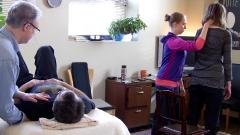 payments of $575 for 36 consecutive months. A $300 initial payment guarantees a space on the course and is applied to tuition. (some work-study opportunities may exist, upon request). Every effort will be taken to keep the tuition costs down but they may have to rise periodically with inflation.
payments of $575 for 36 consecutive months. A $300 initial payment guarantees a space on the course and is applied to tuition. (some work-study opportunities may exist, upon request). Every effort will be taken to keep the tuition costs down but they may have to rise periodically with inflation.
Further Info
Training Course director, Brian McCullough, is readily available by email or phone — (612) 267-5154 — for further advice.
.jpg)
Reasons to Train
• You are looking for meaningful work which energizes you, inspires you and others, and keeps you healthy.
• You know that to guide others toward optimal "use of the self", you first need to improve your own "use", postural ease, and sense of proprioception to a high — and enjoyable — level.
You want to be an expert at a very rare skill that is sought out by everyday individuals, professionals of all artforms or sport, and health and educational institutions.
• You would enjoy everyday hands-on work in order to 1) solve a physical or mental discomfort, 2) clear the way to lifelong improvement at a favorite skill or artform, or 3) enjoy greater health and well-being.
• You like the idea of doing work that you enjoy into older age as a means of income through retirement years.
• You are an individual in the creative sector or have a degree in the the performing arts and you need every edge to help you in success. You also know that it can be difficult to piece together a living. Becoming an Alexander teacher can help provide you a way to "have a life" in your area of interest.
• You are a "helper" of any sort — teacher, counselor, mental health professional, doctor, nurse, physical therapist, body worker, etc. — and need ways to continually, renew yourself, understand root causes to problems, and add a dimension of help for your clients.
Course Content
The training course includes 80% practical work and 20% other related activities. The daily curriculum may include any of the following means of education:
- daily chairwork or tablework mini-lessons for trainees with classmates observing
- trainees working on themselves with practical work of lie-downs, and other types of floor work,
- readings of explanatory text or audio lectures of highly regarded Alexander teachers,
- directed activities which improve use and/or illustrate fundamental movement patterns such as antagonistic action, spirals, balance, actions used in basic teaching procedures, etc.,
- Alexander procedures, usually building in complexity from beginning to end of week,
- application of Alexander principles to a specific activity,
- weekly text summary paper presented by a trainee followed by group discussion,
- topics of anatomy, psychology, neurology, etc. via video lectures,
- viewing and critiquing various commercial and educational Alexander Technique introductory and instructional videos, and video examples of performing artists, athletes, animals, etc.
- refinement in the aspects of teaching the Alexander Technique to clients/students including lesson curriculum and public relations.
